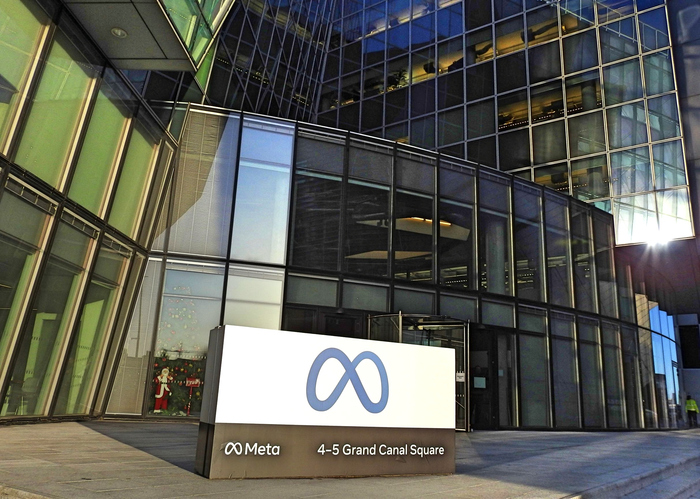Affinity Fraud: What It Is, Examples, Reporting It To The SEC
Affinity fraud is a type of investment scam that target specific groups, such as ethnic, religious, elderly, clubs, or cultural communities. Fraudsters exploit the trust of the members within these communities, only to convice members to invest into fraudulent schemes, like Ponzi or pyramid schemes.
February 11, 2026

This information is provided for educational purposes only by Kohn, Kohn & Colapinto and does not constitute legal advice. No attorney-client relationship is created by accessing this content. Laws and regulations may change, and this material may not reflect the most current legal developments. If you believe you have a whistleblower claim, consult a qualified attorney to discuss your specific circumstances.
Affinity fraud is a type of scam where fraudsters target members of specific communities, such as ethnic, religious, military, or minority groups. These scammers present themselves as trustworthy community members to gain victims’ trust and convince them to invest in fraudulent schemes.
A common tactic used by affinity fraudsters is to employ Ponzi or pyramid schemes.
In these schemes, scammers promise high returns on investments. When in actuality, they are using money from new investors to pay off older investors. All the while, the scammers are misusing the funds for personal expenses, such as real estate or other luxuries.
When the influx of new investors slows down, these schemes inevitably collapse, leaving the original investors with significant financial losses. It’s important to be aware of the signs of affinity fraud and to exercise caution when considering investment opportunities from individuals within your community.
Types of Affinity Fraud
Affinity fraud can take many different forms. But at it’s core, this type of fraud involves fake investments. Below are a few examples of affinity fraud that the Securities and Exchange Commission (SEC) has written extensively about:
- Ponzi Schemes: These schemes promise high returns with very little risk. Money received from new “investors” of the scheme is used to pay back existing “investors,” which makes the scheme appear legitimate;
- Pyramid Schemes: These schemes are similar to Ponzi schemes. The only difference is that “members” earn money by recruiting new “members,” which eventually collapses when there are no new members to recruit;
- Real Estate Schemes: Fraudsters offer investers a chance to invest in properties that are overvalued or do not exist;
- Business Ventures: Fraudsters offer investors a stake in a business which is fraudulent, or which never actually takes off;
- Charity Scams: Fraudsters ask for charitble donations or for support for their nonprofit that does not exist;
These are just a few. It’s crucial to understand these different types of affinity fraud and to proceed with caution when considering any investment opportunity, especially from individuals within a specific community that you may be a member of.
Avoiding Affinity Fraud
There are many red flags to be on the lookout for. Knowing what these red flags are will help you avoid becoming a victim of an affinity fraud scheme:
- Perform a Background Check: Perform a background check on the person who is offering you the investment opportunity to see if all their information checks out. Do research on investment as well, and those who brought you the opportunity.
- Be Weary of Recommendations: A lot of communities use online groups to stay in touch with one another. These are also prime channels for promoting a certain scam. Those who come across such solicitations should be cautious.
- Promises Guaranteed Returns: Ponzi schemes and pyramid schemes both claim to bring investors guaranteed returns with very little risk involved. This is a hallmark of affinity fraud, and most likely to be presented in promotional material or presentations.
- Lack of Official Documentation: If you cannot get an investment opportunity explained in writing, you should proceed with caution. This leaves a paper trail, which schemers avoid. This is a strong sign of affinity fraud, as well as those that are kept “strictly confidential.”
- High-Pressure Decisions: Schemers love to put pressure on their victims by getting them to commit. They may say that the value of the investment is going to increase soon, and they better “act quick.” People should be cautious of this tactic and remember to do their due diligence before making any investment decision.
Just remember, past success or positive results of a particular investment do not guarantee future success or results of that investment. It’s not to say some investments do not perform well, it’s just highly unlikely given various the various market factors that exist.
Examples of Affinity Fraud
Bernie L. Madoff Investment Securities (2008)
The largest affinity fraud case in history was done by Bernard L. Madoff Investment Securities in 2008, who committed a $50 billion fraud. Madoff’s Ponzi scheme targeted wealthy Jewish communities and organizations, including Yeshiva University, Maimonides School, Kehilath Jeshurun Synagogue, Ramaz, the SAR Academy, and Holocaust survivor Elie Wiesel’s foundation and his personal savings.
SEC Halts Pyramid Scheme Targeting Dominican and Brazilian Immigrants
A court order froze $7.5 millions of dollars tied to a pyramid scheme that preyed on Dominican, Brazilian, Chinese, Vietnamese, and Haitian immigrants. The scheme’s promoters enticed victims with false promises of 200% annual returns in exchange for recruiting new participants and posting meaningless ads for a purported multilevel marketing company offering nonexistent VoIP services.
SEC Halts Pyramid Scheme Targeting Asian and Latino Communities
Posing as legitimate cloud companies, a pyramid scheme bilked over $65 million, primarily from Asian and Latino communities both within the US and internationally. The scam promised astronomical returns of 100% or more in just 100 days, luring unsuspecting investors.
SEC Charges Company and its Owners with Conducting an Offering Fraud Targeting Christian Investors
Targeting almost 80 evangelical Christians, Ponzi schemers raked in $6 million through bogus stock offerings and high-interest notes linked to a fake “global voice-over-internet-protocol video services” company.
For more examples of affinity fraud, please read the investor alert put out in 2014.
When to Report Affinity Fraud to the SEC
Affinity fraud is an issue the Securities and Exchange Commission (“SEC”) is on the lookout for and will pay a substantial award to whistleblowers who have strong evidence of one. Features of the SEC’s whistleblower award program include:
- Awards: This is between 10 and 30 percent of the total sanctions collected when the monetary sanctions exceed $1 million.
- Protections: Under the Dodd-Frank Act, whistleblowers may also report information anonymously and receive protection against retaliation.
- Anonymous Reporting: To report anonymously, whistleblowers must be represented by a U.S. based attorney.
If you suspect affinity fraud, such as a Ponzi scheme or pyramid scheme targeting a particular community, we suggest you get in touch with an SEC whistleblower attorney right away. They can help evaluate whether your case has the potential to trigger an investigation and award potential.
The SEC has now awarded almost $2 billion to nearly 400 individuals since issuing its first award in 2012 and is taking whistleblower rewards seriously. However, they are selecting cases where the tip is specific, credible, and timely. Therefore, acting fast and with the assistance of an attorney is in your best interest if you’re seeking the greatest award amount possible.
Para comprender este tema en español, lea:
Cómo detener el fraude de afinidad
Our Firm’s Cases

Environment & Human Rights Violations Exposed
Oil industry’s environmental crimes and cover-up in Colombia have been exposed. Whistleblower Andrés Olarte Peña, with the support of his attorneys Kohn, Kohn & Colapinto and the damning evidence compiled in the Iguana Papers, is calling for an investigation into Ecopetrol and its executives by the Colombian government and the U.S. Securities and Exchange Commission.

$30 Million Award
Protecting the confidentiality of Wall Street whistleblowers is among the most important breakthroughs in federal whistleblower law. Under the Dodd-Frank Act, whistleblowers can file anonymous cases, and everything about their case, including who they sued, remains secret.

$13.5 Million Award
Our firm represented an anonymous whistleblower, who on May 17, 2021, received a whistleblower award of almost $13.5 million. The SEC has issued more than $31 million in whistleblower awards related to this case.
![Reporting Recordkeeping Failures To The Sec [2025 Guide]](https://kkc.com/wp-content/uploads/2025/01/Recordkeeping-Failures.jpg)




